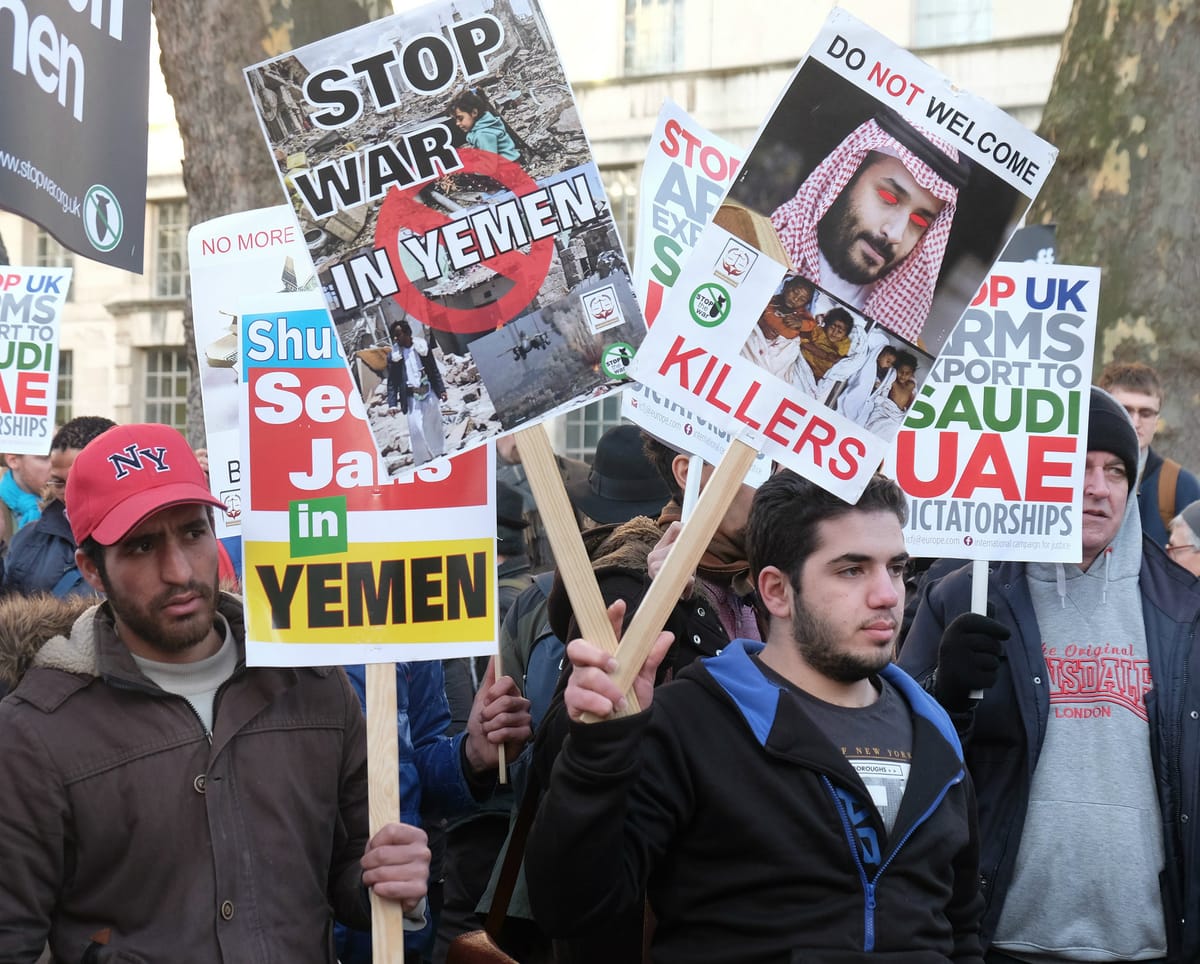Foreign Involvement in Yemen is Fuelling a Humanitarian Crisis

The UN has issued a warning that the number of Yemenis in danger of starving by December, has risen from 8.4 million to 18.4 million. Yemen, since 2015, has been in the grip of a civil war fuelled by foreign intervention. The war is between the Saudi backed Yemeni government, and the Iran backed Houthi rebels.
Since 2015, 3 million people have been displaced from their homes, and Save the Children estimated that 50,000 children died in 2017 alone.
‘The UN has issued a warning that the number of Yemenis in danger of starving by December, has risen from 8.4 million to 18.4 million.’
The Saudi air force is bombing the Houthi rebel strongholds, but also injuring and killing a large number of civilians in the process. In addition to this, it has been suggested by The New Yorker that the Saudi led coalition is using food and other supplies as a pawn, in order to attack the rebels from another point. They have implemented sanctions on Yemen restricting certain supplies, such as protein packs, from foreign aid groups which are in dire need by the civilian population. The result of the last two and half years of sanctions, mean that the country is on the brink of famine.
According to Al Jazeera, despite efforts being made, providing aid to civilians in Yemen is challenging due to the nature of the war. In October 2015, a Saudi airstrike killed four at a hospital operated by Doctors Without Borders, illustrating just how easy it is for civilians, and those sent there to provide aid, to get caught up in the destruction and violence.
The main effect the conflict is having is on the civilians of Yemen, who are caught up in the devastating, often deadly, crossfire. With air raids coming in from Saudi Arabia. Civilians are being displaced into refugee camps, where their safety is not assured. According to the World Health Organisation and UNICEF, this is the world’s largest humanitarian crisis. With ¾ of the population in need of assistance and 8 million people on the brink of starvation families are often having to make the decision whether to feed their starving children or help their sick ones as medical supplies are also in short supply.
The United Kingdom, the United States of America and France are all supplying Saudi Arabia with intelligence information, refuelling of jets, and are supplying weapons, according to ABC News.
The Saudi’s Allies are supplying intelligence advice to the coalition as well as dealing arms. Ethically this has come under fire by British and American citizens alike, questioning their government’s involvement in the deaths. The United Nations High Commissioner for Human Rights estimated that the Saudi led airstrikes (made possible by the weapons and intelligence provided by their allies) have caused 2/3 of civilian deaths. Within the aftermath of Saudi airstrikes on the northern city of Sana’a (which has been under Houthi control), missiles designed and built by the Raytheon company, the third largest defence company in the US, were discovered. In addition, Al Jazeera reports that the United States conducts airstrikes on Al-Qaeda and ISIS factions within Yemen furthering both civilian dislocation, and instability. Without the aid of their allies, waging war would have been difficult for Saudi Arabia.




